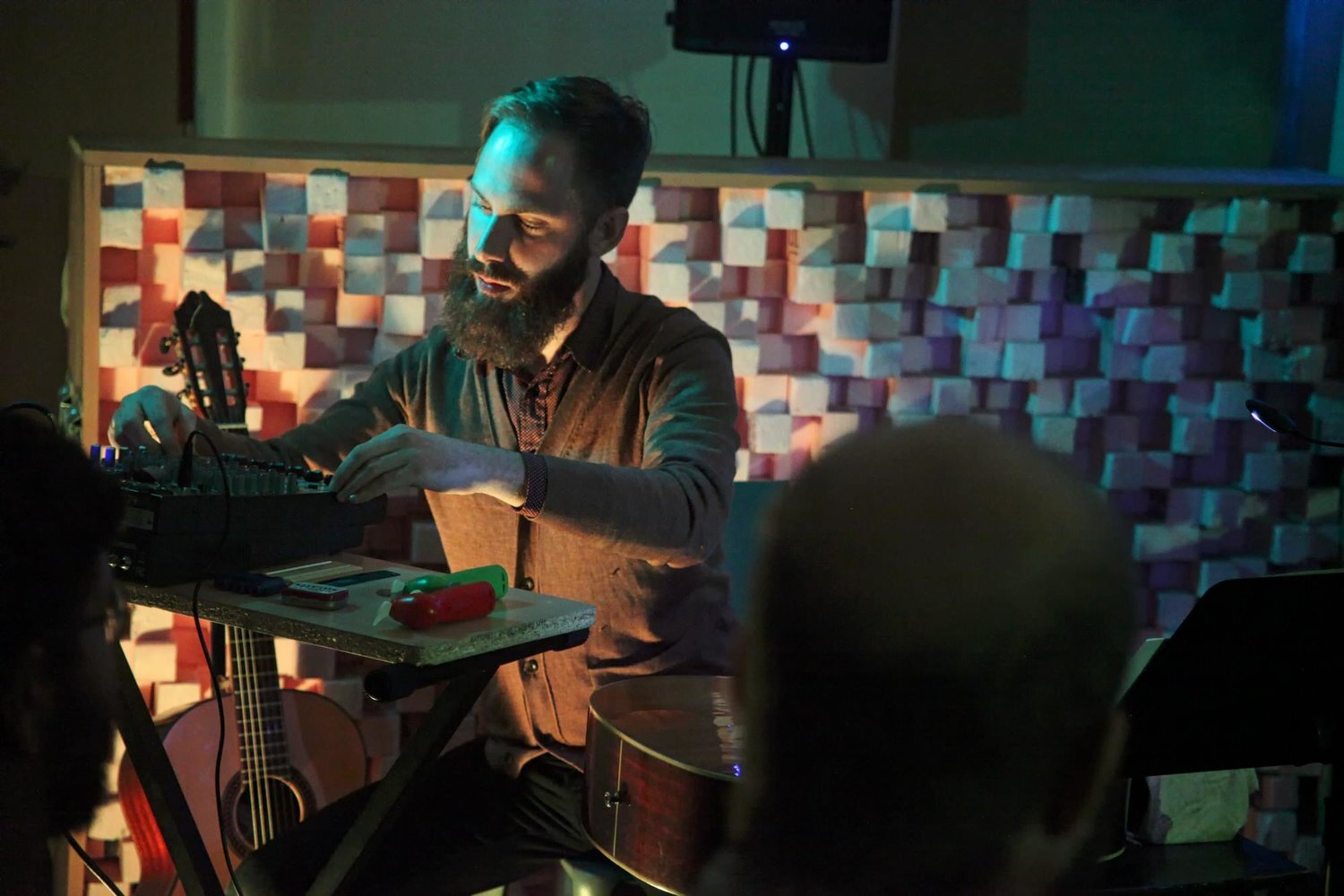Rather the long doubts
written by Clifton Ingram
2019 GLFCAM Julius Eastman Fellow, Cycle 12
“This threat: the only lesson is to wait. I crouch in the smoggy terminus. The streets lose edges, the rims of thought flake. What have I set myself to fix in this dirty notebook that is not mine? … Rather the long doubts: that this labor tears up the mind's moorings; that, though life may be important in the scheme, awareness is an imperfect tool with which to face it. To reflect is to fight away the sheets of silver, the carbonated distractions, the feeling that, somehow, a thumb is pressed on the right eye. This exhaustion melts what binds, releases what flows.”
~ Samuel R. Delany, Dhalgren
Lately, I’ve been noticing more that my work from the last handful of years has grown increasingly apocalyptic. To my ears, musical material is spread thin, technique obscures gestures, and a fragile vulnerability haunts even the most luminous of resonances in a hushed landscape.
I don’t think it’s hard to imagine why this is the case. Lately, social, economic, and political problems have seemed more and more dire – eschatological even – reaching feverish pitch as we ramp up to another divisive election year in the US. A sense of uncertainty is a hard force to fight, and it is all too easy while facing persistent injustice to succumb to feelings of powerlessness, to get caught in feedback loops of frustration and fatalism. It can be exhausting enough just to stay connected and bear witness to our world, let alone to join the trenches in trying to change it.
This is all to say, I know that I’m not the only one that is struggling to keep their proverbial head above water these days in my civic duties. More and more regularly, we see confessional think pieces doing the rounds on social media. Through acts of intense vulnerability, brave authors share their experiences about facing agonizingly hard choices, where the pursuit of their passion has proven unsustainable. Most often, this is due to system issues revolving around cruel economic conditions and dehumanizing bigotry. Many of these articles revolve around our education system. And it goes without saying that there are many of these articles that pertain to the music world, as well.
This is not the lightest reading material, admittedly, but I have found these pieces have impacted me deeply. Largely, in part, I think because they are humanizing in their disarming openness. Often, the authors describe the very difficulties of learning how to share their experience, the struggles in getting to the point where they could write the article in the first place – there is a great deal of humility here. These are stories of a quieter type of victory, I find, where the sting of failure is not erased from the story in some Hollywood happy-ending. There are no silver bullets, and we must take the good with the bad. The catharsis of reading these stories is exactly the point, I feel, an experience rooted in the author’s searching for alternative paths: the discovery of possibility and change.
To me, that’s what was so special about my experience at GLFCAM – it reminded me of a different mode of living. I was surprised how Boonville felt so familiar to me, not unlike where I grew up in northeast Vermont in the 80s and 90s. Even the Anderson Valley’s undulating landscape dictated a sense of green-mountain nostalgia for me: how the gentle ridges surrounding the valleys channel the weather, falling onto scenes of loping forest and field around which rivers and roads snake their way in slow, deliberate coils. Granted, California is not Vermont, and there are many differences. But Gabriela’s and Jeremy’s enthusiasm and hospitality, the GLFCAM staff’s attentiveness and resourcefulness, Del Sol Quartet’s generosity and openness, and the other Fellows’ attentiveness and flexibility all combined to create a forum of sincerity and support.
We talked a good amount of sustainability throughout the week, from career-based strategy to ecological activism. In fact, at the time of writing this blog, Gabriela just announced GLFCAM’s new Climate Commitment initiative. This resonates with me a lot. One of my bugbears is where we currently stand on climate issues. Recent reports seem to land us at the edge of an apocalyptic precipice, some even positioning us frighteningly beyond the event horizon. I grew up around alternative energy; in the self-sustaining, DIY spirit of the Back-to-the-Land movement, my father built his house to be off-grid, powered by solar and heated by wood. Gabriela and Jeremy have also built themselves something special in Boonville, working with their environment and local community. I am excited to see how GLFCAM will evolve to encompass more ecologically-minded models of sustainability in the future.
To me, the beauty of this rural lifestyle lies in its chosen sacrifice: there is a loving upkeep to gathering kindling and chopping wood, to nurturing a healthy compost, to tending a garden. When you try to become more self-sustaining and sustainable in your actions, there is always going to be more work to be done. But I think there is a lesson here: that sustainability involves intentionality, restraint, and sacrifice. I don’t mean to sound so stoic, as these things can manifest in many different ways for many different people – this is not about policing anything. I just want us all to slow down, to become more deliberate with our choices, and to reflect more on what we really want for and from our communities.
Clifton Ingram is a Boston-based composer and performer (Rested Field, guitars & electronics). His music aims to approach and retreat from itself along the fault lines of the musical and extra-musical — hidden objects, delicate obstinance, self-devouring ornamentation (self-replication/mutation), hastily decanted surfaces — the expression of an unreliable narrator. Learn more from Clifton’s bio page.
